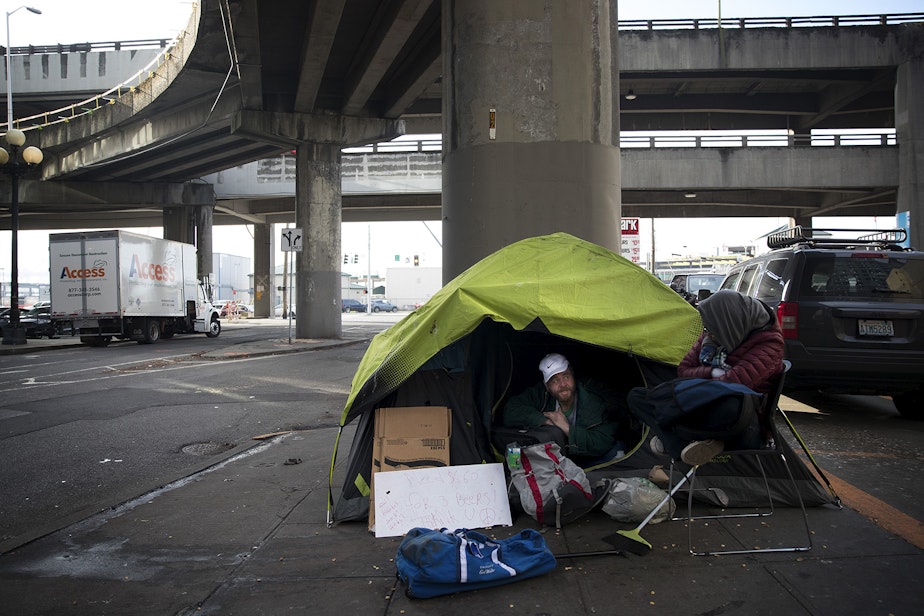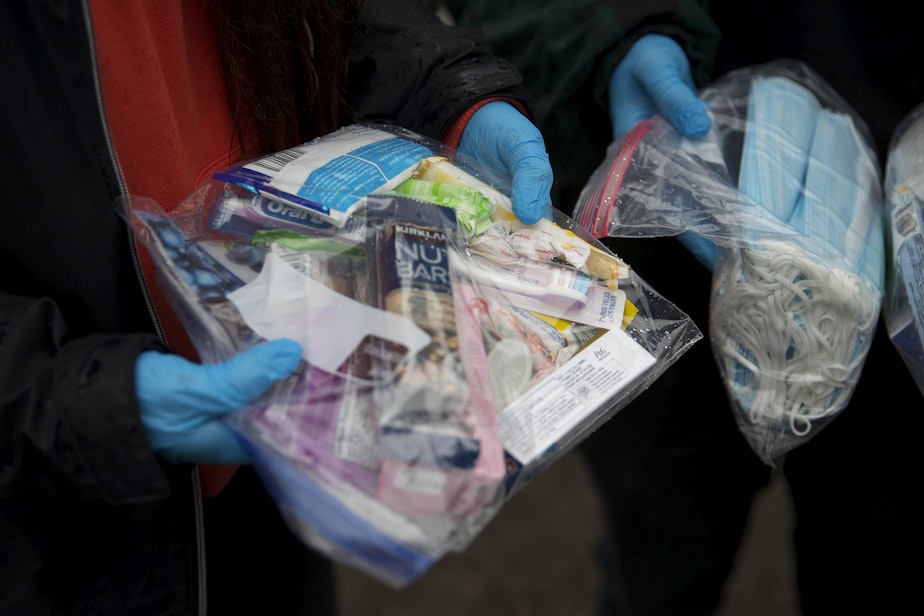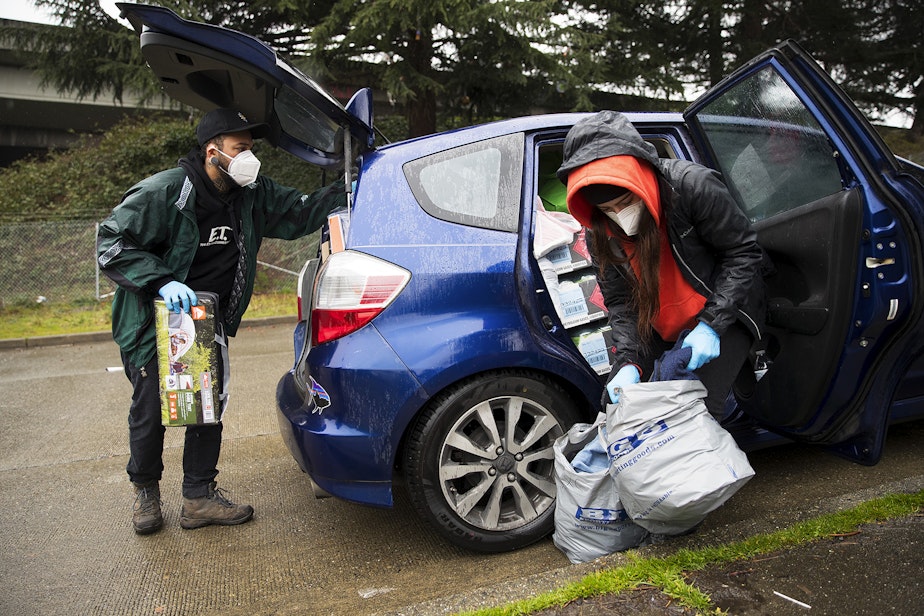Politics of Seattle's housing crisis: How homeless advocates fill gaps

Seattle voters have some homework to do: They will need to study up on a measure now gaining strength that will probably appear on the November ballot.
The measure would provide shelter, housing, mental health and substance abuse services for folks experiencing homelessness.
After such services are provided, the measure would require the city to clear public spaces and parks of encampments.
First, the campaign for the charter amendment must collect about 33,000 valid signatures, which they are likely to do.
The measure was written by business leaders and lobbyists. Former Councilmember Tim Burgess is behind the effort, but it also has the support of many social service providers.
And that's because the measure's core goals — to get more people into shelters and housing while keeping sidewalks, streets and parks clear of unhoused people — appeal to a wide range of interests.
"Let’s start with the idea that no one actually favors homelessness and wants more of it," says Joni Balter, host of Civic Cocktail on the Seattle Channel. "What I like about the charter amendment is it's a serious proposal aimed at moving the discussion about homelessness forward. It’s action, it’s services, money, shelter, housing and cleaner parks and sidewalks."
Balter notes the proposal does not include new money in the city budget; it would just dedicate money to the cause.
But while it may be a winning ideological proposal, it's not without its flaws in some skeptics' eyes.
Sponsored
"One legitimate fear is this charter amendment begets another or even a counter charter amendment, and then it’s out of control; a plague of charter amendments," Balter says. "Another question: Will this do what it is intended to do?"

Community advocates, like mutual aid volunteers, are wondering the same thing.
Of particular concern to those groups is the goal of clearing public spaces of visible signs of homelessness, and the people within them.
KUOW's Casey Martin says the city's outreach to people living outside has been scattered, and advocates aren't certain this proposal will actually get people into sustainable living situations.
Sponsored
"They say that until there is longer-term shelter available, until there is a tiny house or an apartment, they should just kind of be there," Martin says.
The bottom line is Seattle's housing crisis will not simply end.
The homeless population in King County increased in 2020, according to the latest county data. That report was released last July, and did not account for the full extent of the pandemic's impact on this population — the impact it continues to have.
Balter says people clearly want this to change.
Some people, like the mutual aid volunteers Martin noted, are trying to make that change where the city falls short.
Sponsored
KUOW's Liz Brazile shadowed a pair of mutual aid workers: Joscelyn and Cass DuVani, a 26-year-old married couple who have essentially made outreach their full-time jobs; jobs they're not compensated for.

"And their approach is pretty simple: Ask the people what they need, and then deliver it if they can," Brazile says. "All of the resources that they're using to assist these people are either coming out of their own pockets or being crowdsourced through a network of donors."
The DuVani's told Brazile everyday people should not have to plug holes the city isn't filling, and they're cynical about the NIMBY attitude that may be behind some housed folks' support for a solution like the proposed charter amendment; the concern being that they care more about a neighborhood's aesthetic than housing people in need.
Sponsored
The DuVani's say they see people experiencing homelessness as their neighbors. That perspective guides their work and their mantra: "Solidarity, not charity."
Balter, Martin and Brazile joined KUOW's Angela King to talk about politics this week and beyond. Listen to the conversation by clicking the audio above.







